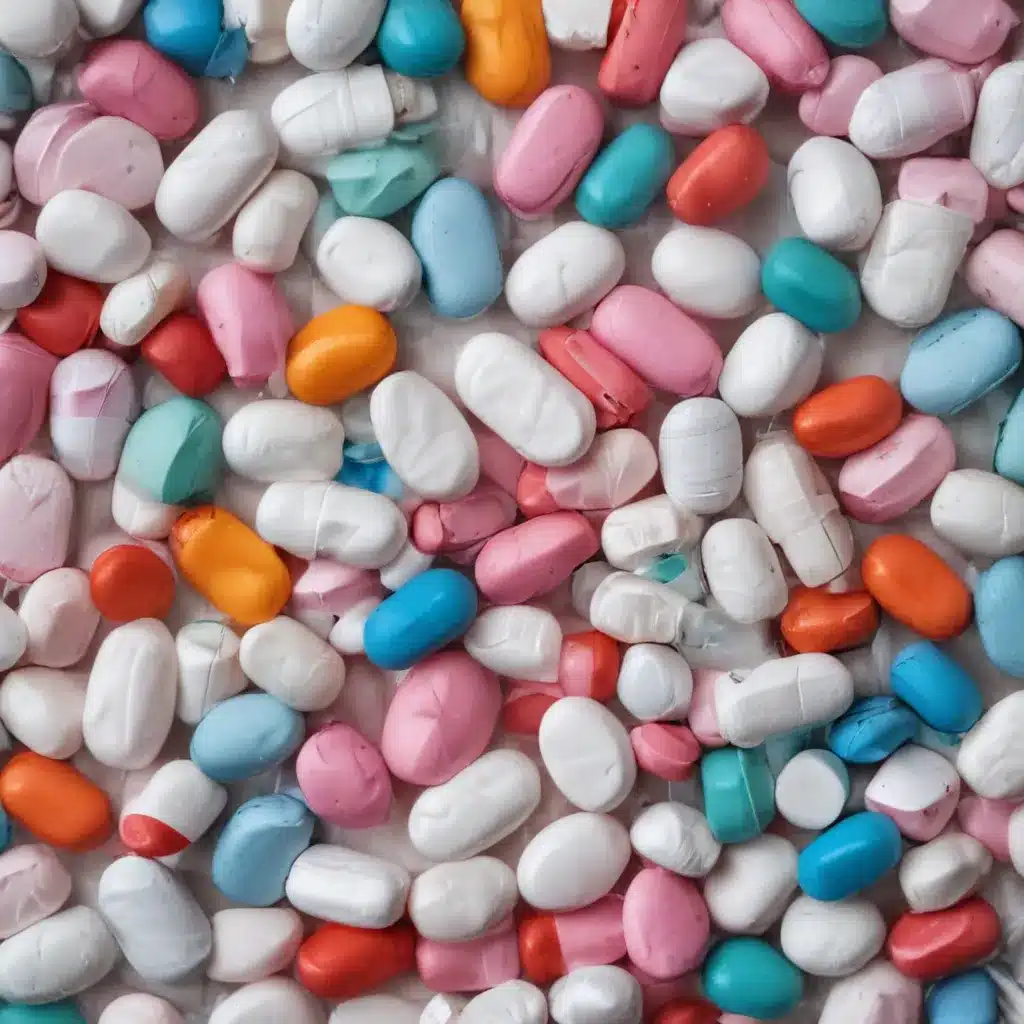The Trouble with Typical Trash Disposal
As a born-and-raised Nottinghamshire lad, I’ve had my fair share of experience with household chores. From scrubbing the kitchen tiles to vacuuming the living room, I like to think I know a thing or two about keeping a tidy home. But there’s one area that’s always baffled me – what to do with unused medications.
For the longest time, I’d just toss them in the bin without a second thought. Out of sight, out of mind, right? Little did I know, I was creating a ticking time bomb in my own rubbish. You see, those seemingly harmless pills and potions can pose a serious threat to both the environment and public health if not disposed of properly.
According to the Wisconsin Department of Natural Resources, flushing medications down the drain or pouring them down the sink is a big no-no. Most water treatment systems simply can’t filter out all those pharmaceutical compounds, meaning they end up seeping into our waterways and contaminating the environment. And don’t even get me started on what they can do to septic tanks!
The authorities are adamant – household pharmaceuticals, including pet meds, need to be handled with care. But what’s a concerned citizen like me to do? As it turns out, there are a few options worth considering.
Pharmacy Takeback Programs to the Rescue
One of the more convenient ways to dispose of unwanted drugs is to take advantage of pharmacy takeback programs. The Wisconsin DNR explains that certain pharmacies in the area are authorized to accept unit doses of cancer and chronic disease medications. So if you’ve got a stash of old prescriptions taking up space in your cabinets, why not see if your local chemist can lend a hand?
But what if you’ve got some controlled substances, like opioid painkillers, laying around? That’s where things get a bit trickier. The DNR recommends contacting your local police department to find out if they have a drug takeback program that can handle those more sensitive items. Some stations will even accept non-controlled substances, so it’s worth making a few inquiries.
Of course, the process becomes a bit more complicated when a loved one passes away. The DNR advises that a family member or the person responsible for the estate should arrange for the proper destruction of any remaining medications as soon as possible. Hospice and home care staff are no longer allowed to manage controlled substances on behalf of deceased patients, so this task typically falls to the next of kin.
Medication Mail-Back Programs
If you don’t have access to a local takeback program, another option is to utilize a mail-back service. The U.S. government’s official websites stress the importance of making sure any mail-back packages you use have pre-paid postage, unique identification numbers, and are pre-addressed to an authorized destruction facility. Be wary of any sketchy-looking schemes – legitimate programs will be clearly labeled and accounted for.
The experts also recommend avoiding leaving those mail-back packages in unsecured rural mailboxes whenever possible. Better to hand it directly to the postal worker to minimize the risk of diversion or accidental exposure.
Of course, proper storage is key while you’re waiting to send those meds off. The DNR advises keeping them out of reach of children and in a locked cabinet to prevent any unintended incidents. Safety first, folks!
When All Else Fails, Trash with Caution
I know, I know – throwing medications in the regular rubbish goes against everything we’ve discussed so far. But the Wisconsin DNR says that’s better than flushing them or leaving them lying around, especially when there’s a risk of accidental poisoning, overdose, or diversion.
The key is to take a few precautions first. Manufacturers offer various “medicine disposal products” that claim to render drugs safe for the trash, but the authorities haven’t approved any of them. So forget about those gimmicks – good old-fashioned common sense will have to do.
Start by removing any identifying information from the pill bottles or packaging. Then, mix the meds with an unpalatable substance like kitty litter or used coffee grounds to deter any curious critters. Pop the whole concoction into a sealable plastic bag or container before tossing it in the bin. Easy peasy, right?
Of course, this method shouldn’t be your go-to option. As the Mayo Clinic points out, the safest and most environmentally-friendly approach is to use a proper takeback or mail-back program whenever possible. But when all else fails, at least you know how to dispose of those unwanted meds responsibly.
A Cleaner, Greener Future
Look, I get it – dealing with unused medications can be a real headache. But the truth is, we’ve all got a responsibility to protect our communities and the planet. That’s why I’m urging every Adam’s Cleaning customer in Nottingham to take a closer look at their medicine cabinets and start exploring their disposal options.
Whether it’s finding a local pharmacy takeback program, arranging a mail-back service, or carefully trashing the contents, there are plenty of ways to ensure those old prescriptions don’t end up causing more harm than good. So what are you waiting for? Let’s work together to keep Nottinghamshire clean, green, and safe for generations to come!







